48: Web may eventually disappear
Web may eventually disappear…
Hmm, did I say “Web”?
I actually mean Web browsing may eventually…did I say disappear?
OK, now I got your full attention, what I really want to say is:
Today’s web browsing may soon be completely different.
The good old days
For people who have experienced, in the good old days, we connected to Internet by calling a phone number through modern, downloaded the content and then read them.
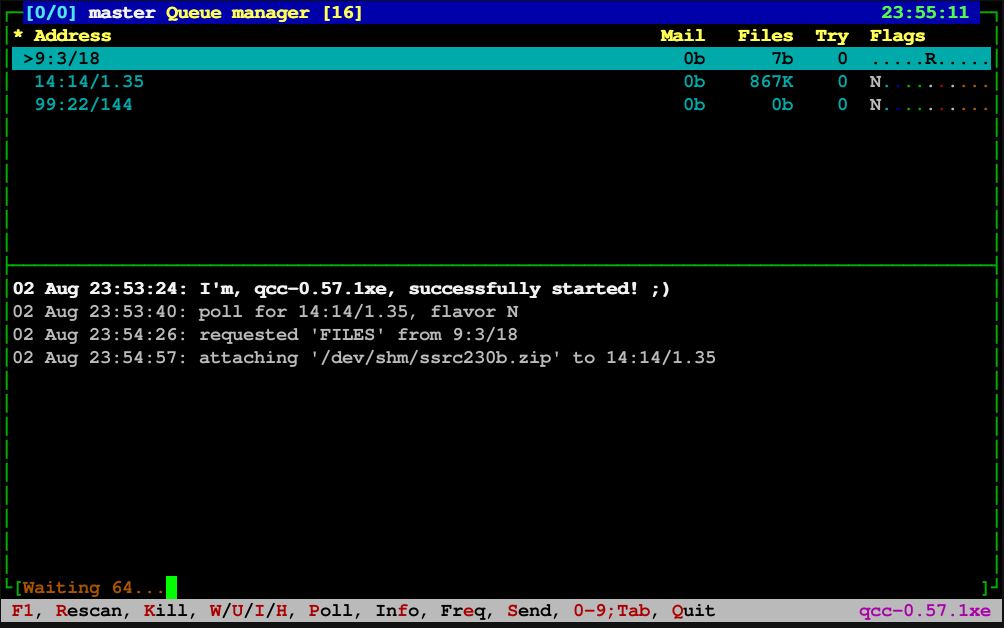
Ref: https://en.wikipedia.org/wiki/FidoNet
This was one of the popular BBS, where you had to telnet to it first, pulled down all the articles and discussions since your last download, and then you could finally read them after you disconnected from the “Internet”.
Why did it go away?
Of course this way of Internet browsing has already extincted, because it’s so slow and not real time. To respond any topic, you will have to disconnect and write, and then connect again to upload your words. The worst part is, it did not support parallel connections, meaning, no two people can connect to the same “Net” at the same time. You had to setup the modern call repeatedly.
Then what is so good about?
Not too much, except it served content reading very well. It’s like going to a bookstore or a library, you grab a book (only one) to read it, then another person who is interested would have to wait till you finish. If you buy the book (disconnected from the bookstore), you completely own the book and also because you have paid for it, you are fully dedicated to finish reading it.
The most important benefit is, reading content without any distraction.
What about today’s web browsing?
In a nutshell, most of today’s web content are in this kind of design:
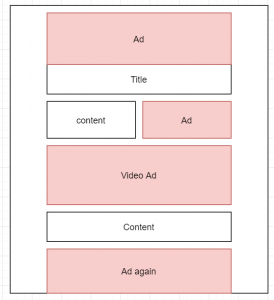
What you are really interested are mostly blocked by other distractions.
Let me give you a concrete example:
I was looking for asparagus recipe the other day, here is what I found:
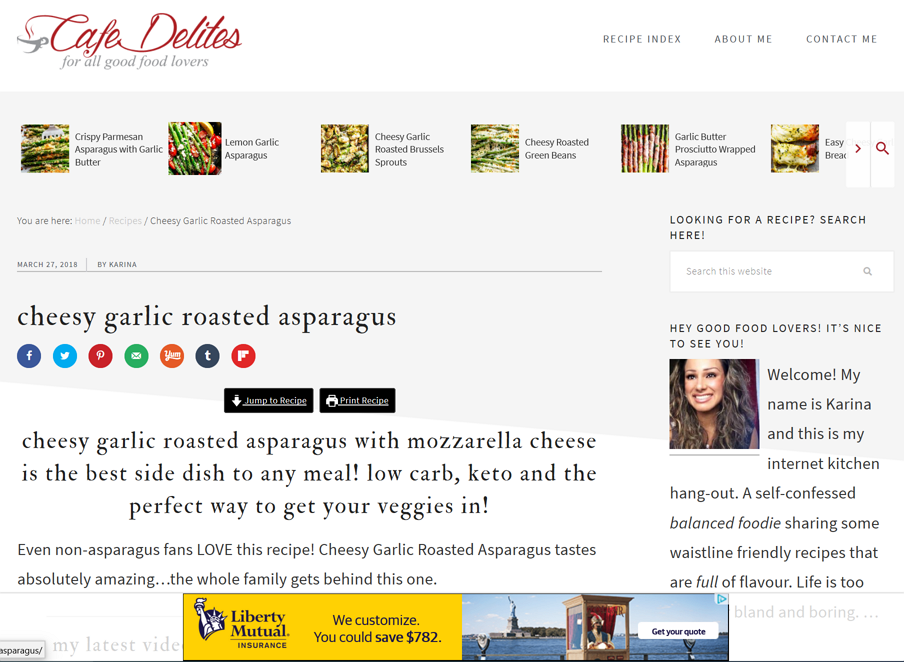
I guess from the top, it’s not so bad. Let’s scroll down:
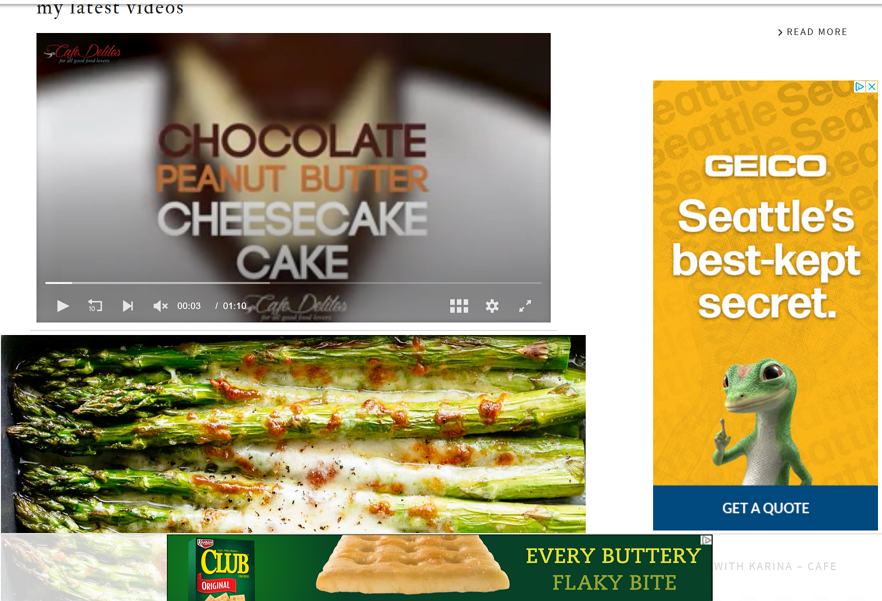
Hmm, a big video totally irrelevant and then a big picture…

Wow, that is really a long picture. And an ad again! now there is even a floating ad.
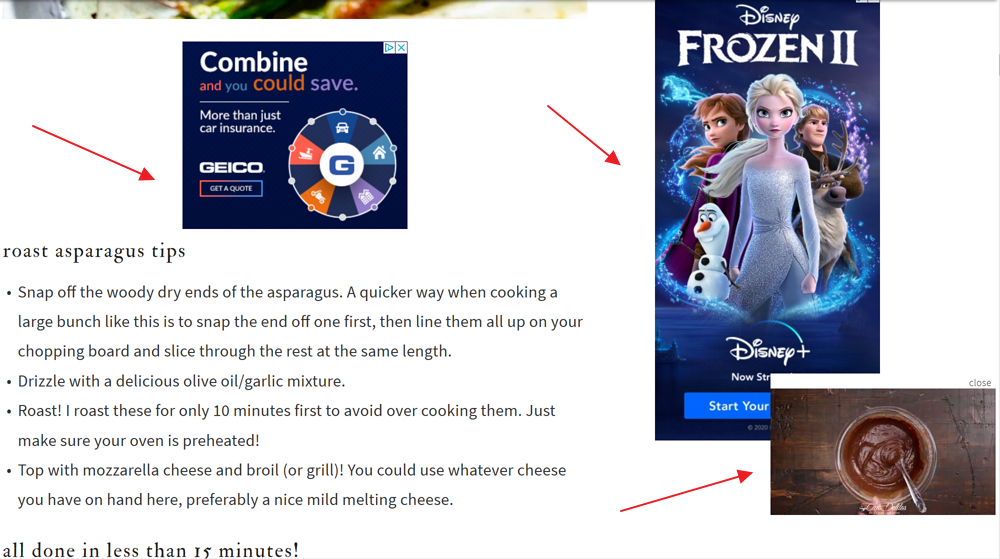
OK, finally something to read. But where is the recipe?
Hey, do you really need me to point out where the ads are?
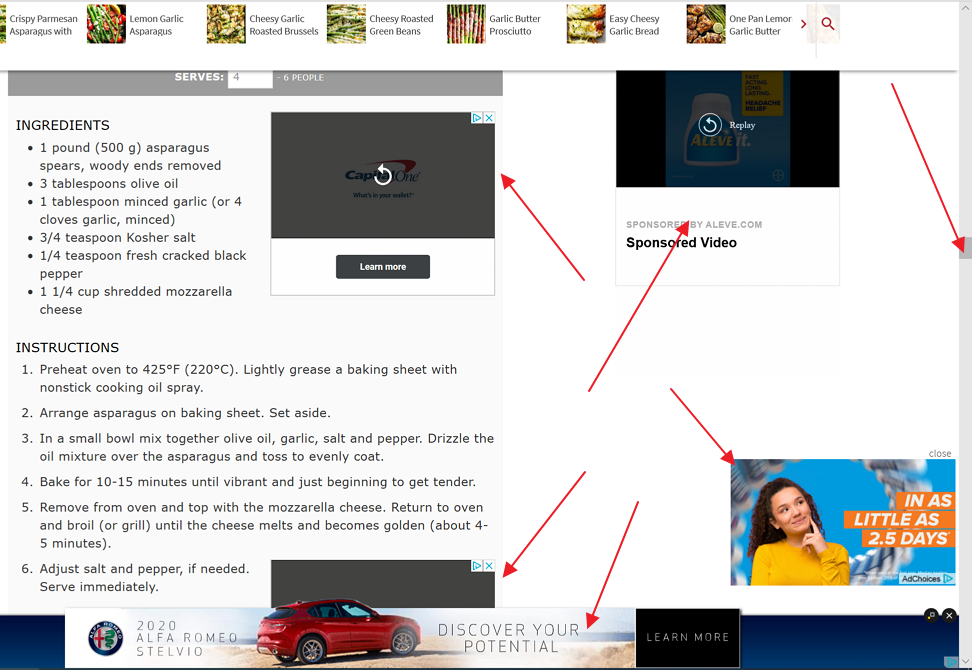
Alright, finally, I see what I really need to read and the content I initially was looking for: Ingredients and Recipe! I made the full screenshot, did you notice that I have scrolled down almost half of the page? This is not even a complicated recipe! And when I am trying to read the recipe, there are 5 different distracting elements on the page!
You still think it’s not too bad?
Try using a mobile device, like a phone to open this link: https://cafedelites.com/cheesy-garlic-roasted-asparagus/
And there are website asking us to remove AdBlock before accessing?
Web browsing is just dumb
You can argue that maybe some website overuse ads, it does not represent the entire web browsing interaction. However, I am leaning to think this is a sign that we need to change in digital content delivery. How end-users find and absorb digital content has changed once, I believe in the future, it will be changed again from today’s flow.
What was the flow of Internet content reading?
Gen 1
As described above, it used to be:
- call a phone number through modern
- select packages to download
- disconnect from the Net
- unzip the downloaded packages
- read them (with full attention)
Gen 2
I like to call our today’s Internet browsing as gen 2 of digital content reading. In general, it works like this:
- launch an Internet browser (an app)
- search some keywords
- open some links (mostly on the first page of the results)
- avoid all the distraction on the page and try very hard to read what you really look for
There are some interesting and subtle difference in these 2 generations.
| Gen 1 | Gen 2 | |
|---|---|---|
| Attention Span | Long | Short |
| Distraction | None | Lots |
| Content Media | Text, Images (rare) | Text, Images, Video, Audio, Navigation |
Today, most of us have very short attention span, meaning if we don’t find what we are looking for in a certain amount of time, we will just go away. Based on the recent study, an average Internet user’s attention span is only 12 seconds. In the Gen 1, users spent much longer time on reading content. I guess there are many different reasons, but primarily, at that time, Internet content were not that many, when you got some, you tried to really read all of them. Today is a totally different world.
I will skip the second point distraction, you get the idea.
Today’s digital content is not only employing video and images, some even employ navigation. For example, if you are interested in knowing the ranking of 25 mid-size luxury SUV, prepare to click a button 50 times!
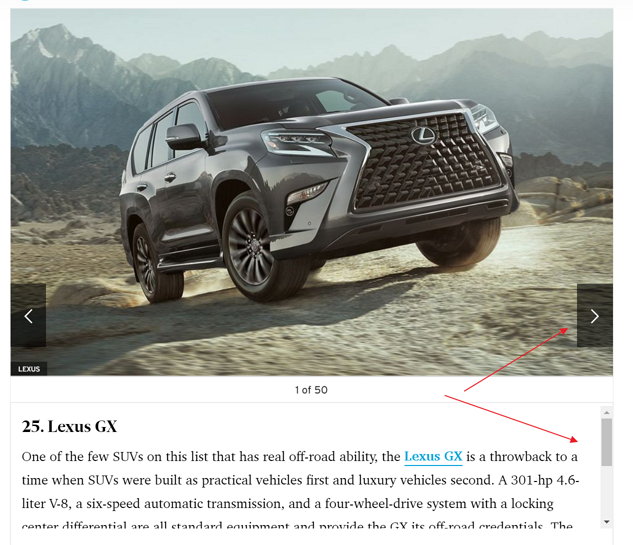
Why would anyone think it’s a good idea to read a piece of small paragraph in a tiny window with a scrollbar? Why would anyone want to click 50 times to navigate the ranking? And this is not a screenshot from a mobile browser, it’s from a desktop browser. I may accept this design could work better on a mobile device, as swiping will make a little sense. But I am curious in such a topic, I would probably love to see what the top 5 are, not starting from the bottom. I would probably want to have a quick view on how they rank them and metrics was used, so maybe a tabular content with metrics will be great?
Finally, have you noticed there is indeed one similarity in these 2 generations. It’s an Application. But to be fair, in the past, we were disconnected. So we had to use an app to become connected first, and then we can download the content. The app was almost like invoking the connection with Internet, and then it will receive the content based on my selection.
In gen 2, I am always connected; however, now I have to explicitly launch an application, and again explicitly type keywords to find what I want, next explicitly open some pages to confirm if they are indeed what I want. It is understandable that as an average Internet user, I do not have so much attention span, as I have to do a lot of other things before reading. This is terrible experience.
What about Personalized Content Delivery App?
Sure, those applications such as Flipboard, Curiosity, or even PInterest, etc. are so-called personalized content delivery that automatically discover trending stories and the latest news for you, based on what categories I pick.
I supposed their intention was good. Take Flipboard as an example. It displays the headline and a small short paragraph to you, if you are not interested, you just flip to the next story. I do not have data how many people flip before reading anything. Here is my issue, even though it’s called personalized feed, it’s simply based on the categories I pick. By the way, do you know how many category options it has? The feed in each category returns trending stories, nothing about me. I still have to invoke explicit command to find what I want.
What is Gen 3 then?
OK, enough nonsense, what will be the gen 3 of digital content reading/delivering?
I have no idea!
I just want, I do not have to spend time to find it, it is exactly what I need, and I can have full attention to it.
Many people agree that buying a smart fridge is a dumb idea, including me. But what if a fridge can identify what ingredients I have, and show me the recipe I may like to know, without me asking it? And it knows I don’t need to know about the crap like tips or nutrition information, just give me the most important information.
Once I confirm the recipe, the fridge can move all the ingredients to a small section. Of course everything will be chopped and cut (nicely). I open the fridge and take the section out. The stove is automatically turned on when I put a pot of water on. A video starts playing from somewhere to walk me through the rest of the steps. I don’t explicitly invoke anything. The digital content just delivered to me automatically. Will that be real smart?
But that is just a small part of use case in digital content reading.
Will we still have web browser? I lean to think we will NOT have it, or we will not need to explicitly launch one.
Will web page still exist? That will probably be there. But web will be presented in a different way. Maybe Chrome OS is heading the right direction, our entire operating system will be just a web page. I don’t have the answer for my own questions, but I will keep thinking, because I really feel browsing Internet today is really dumb.